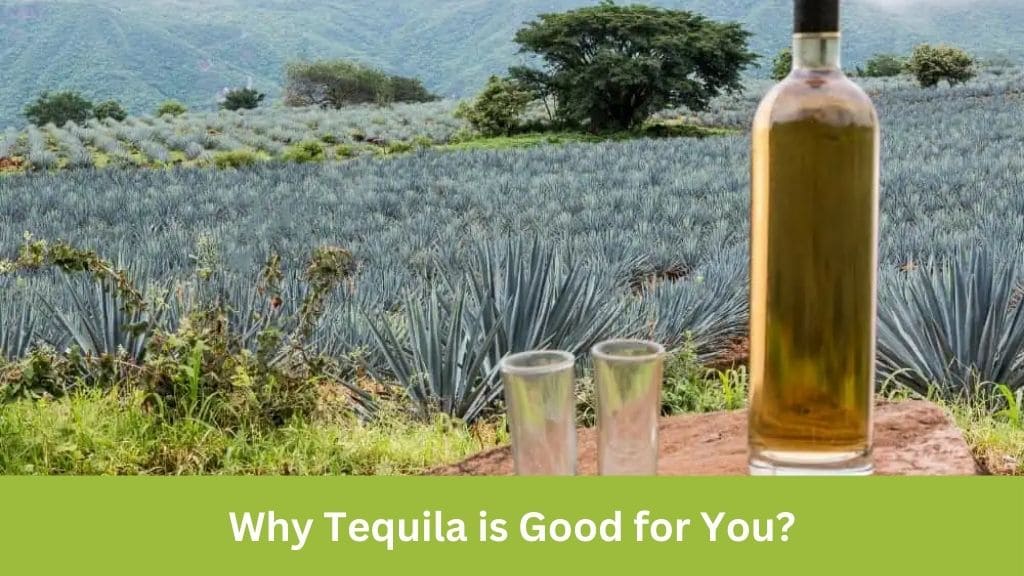Tequila, often associated with festive occasions and lively celebrations, holds more benefits than just being a party favorite. Contrary to common misconceptions about alcohol’s detrimental effects on health, tequila boasts several surprising advantages that make it stand out among other spirits. From its impact on blood sugar levels to its gluten-free and vegan-friendly nature, there are numerous reasons why tequila can be considered good for you. In this comprehensive blog post, we’ll delve into the various health benefits of tequila and explore why it might just be the spirit of choice for those seeking a healthier indulgence.
Basics of Tequila
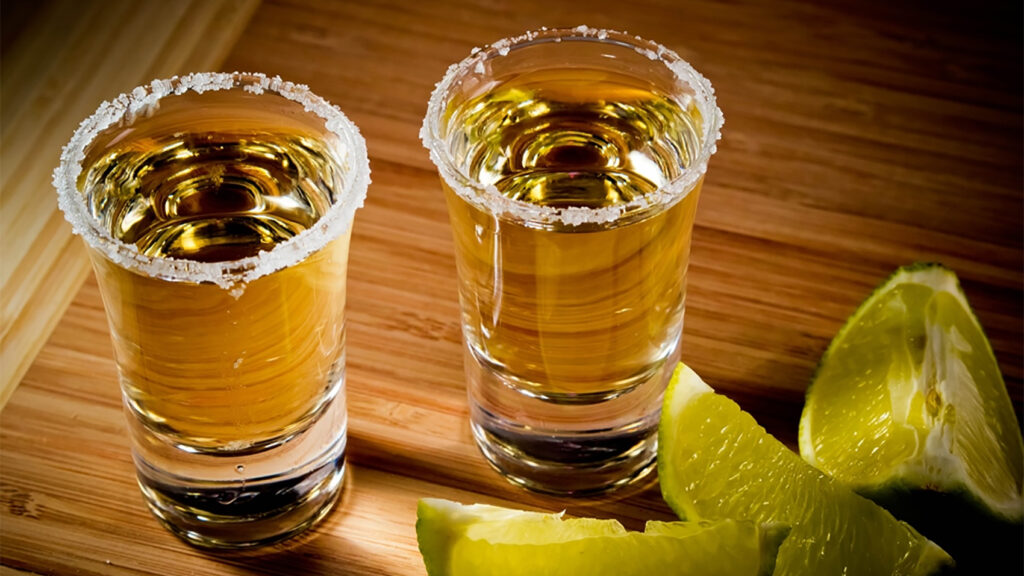
Before delving into its health benefits, let’s briefly outline what tequila is and how it’s made. Tequila is a distilled alcoholic beverage originating from Mexico, primarily produced in the region surrounding the city of Tequila in the Jalisco state. It’s crafted from the blue agave plant, also known as Agave tequilana, which gives it its distinctive flavor profile.
Tequila, often hailed as Mexico’s national spirit, has a rich cultural and historical significance dating back centuries. Its origins can be traced to the indigenous peoples of Mexico, particularly the Aztecs, who fermented the sap of the agave plant to produce a primitive form of alcoholic beverage known as pulque. The Spanish conquistadors later introduced the process of distillation to the region, leading to the evolution of modern-day tequila production.
The Agave Plant: Heart of Tequila Production
At the heart of tequila production lies the blue agave plant, scientifically known as Agave tequilana Weber. This succulent plant, native to Mexico, thrives in the volcanic soils of the Jalisco region, where the unique climate and terrain impart distinct characteristics to the agave harvested for tequila production.
Harvesting and Processing
The process of creating tequila begins with the careful harvesting of mature blue agave plants, typically between seven to ten years old. Known as the piñas, the heart of the agave plant is harvested by skilled jimadores, who skillfully remove the leaves to reveal the prized core.
Once harvested, the piñas undergo a meticulous cooking process to convert the complex carbohydrates into fermentable sugars. Traditionally, the piñas are slow-cooked in stone ovens or autoclaves, imparting rich caramelized flavors to the agave.
Fermentation and Distillation
After cooking, the agave juices are extracted from the piñas and transferred to fermentation tanks, where natural yeasts or cultivated strains initiate the fermentation process. Fermentation transforms the sugars into alcohol, resulting in a raw liquid known as “mosto.”
The mosto is then distilled to produce tequila, a process that involves multiple distillations to achieve the desired purity and flavor profile. Tequila may be distilled to different levels of purity, resulting in distinct classifications such as blanco (unaged), reposado (aged), and añejo (extra-aged) tequilas.
Aging and Maturation
Following distillation, some tequilas undergo aging and maturation to enhance their flavor complexity and smoothness. Aging typically occurs in oak barrels, where the tequila absorbs flavors and aromas from the wood, resulting in nuanced characteristics ranging from vanilla and caramel to spice and oak.
The duration of aging varies depending on the desired style of tequila. Blanco tequilas are typically unaged or aged for a brief period, while reposado and añejo tequilas undergo longer maturation periods to develop their signature flavors.
Tequila Production Process
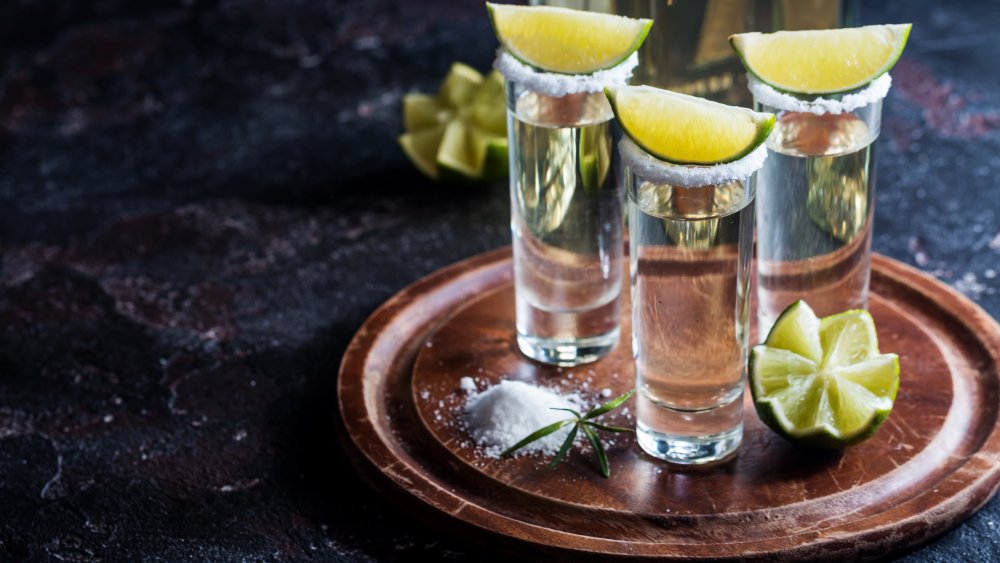
Harvesting
Tequila production begins with the careful harvesting of mature blue agave plants, also known as agave tequilana Weber. These plants typically take between seven to ten years to reach maturity. Skilled workers called jimadores harvest the agave by hand, using a specialized tool called a coa to remove the spiky leaves and reveal the heart of the plant, known as the piña.
Cooking
Once harvested, the piñas undergo a cooking process to convert the starches into fermentable sugars. Traditionally, the piñas are slow-cooked in large stone ovens called hornos, where they are steamed for up to three days. This slow-cooking process caramelizes the sugars in the agave, imparting rich flavors to the final product. In modern production facilities, some distilleries use autoclaves for faster cooking times.
Extraction
After cooking, the softened piñas are crushed to extract the sweet juice, known as aguamiel or honey water. In traditional methods, this crushing is done using a large stone wheel called a tahona, pulled by mules or horses. In modern distilleries, mechanical crushers are often used to extract the juice.
Fermentation
The extracted juice is transferred to fermentation tanks, where it undergoes fermentation to convert the sugars into alcohol. Depending on the distillery’s methods, natural airborne yeasts or cultivated yeast strains may be used to initiate fermentation. Fermentation typically lasts several days, during which time the sugars are converted into alcohol, producing a low-alcohol liquid known as “mosto.”
Distillation
The mosto is then distilled to create tequila. This process involves heating the liquid to vaporize the alcohol, which is then condensed back into liquid form. Tequila is typically distilled twice, although some high-quality tequilas may undergo a third distillation for added purity. The distillation process separates the alcohol from other compounds in the mosto, resulting in a clear, high-proof spirit.
Aging (Optional)
After distillation, some tequilas may undergo aging to develop additional flavors and complexity. Aging typically takes place in oak barrels, which can impart unique characteristics to the tequila. Blanco tequila is unaged and bottled shortly after distillation, while reposado and añejo tequilas are aged for varying lengths of time to achieve different flavor profiles. Reposado tequila is aged for a minimum of two months but less than a year, while añejo tequila is aged for at least one year but less than three years.
Blood Sugar Regulation
One of the key components of tequila that contributes to its potential health benefits is agavin, a natural sugar found in the agave plant.
Agavin and Blood Sugar Regulation
Unique Properties of Agavin
- Agavin differs from other sugars in its chemical structure and how the body metabolizes it.
- Unlike glucose and fructose, which are rapidly absorbed into the bloodstream and can cause spikes in blood sugar levels, agavin is a non-digestible carbohydrate.
Impact on Insulin Response
- Research suggests that agavin may have a positive impact on insulin levels and blood sugar regulation.
- Studies conducted on animals have shown that agavin can stimulate the production of insulin, a hormone that helps regulate blood sugar levels, without causing a significant increase in blood glucose levels.
Potential Benefits for Diabetes Management
- For individuals with diabetes or insulin resistance, the ability of agavin to promote insulin production without spiking blood sugar levels could be particularly beneficial.
- By supporting insulin sensitivity and glucose uptake, agavin may help individuals better manage their blood sugar levels and reduce the risk of complications associated with diabetes.
Slow Absorption and Satiety
- The non-digestible nature of agavin means that it passes through the digestive system without being absorbed, leading to a slower release of glucose into the bloodstream.
- This slow absorption can help promote feelings of fullness and satiety, potentially aiding in weight management and reducing the risk of overeating or excessive calorie intake.
Research and Clinical Studies
Animal Studies
- Animal studies have provided valuable insights into the potential health benefits of agavin.
- Research conducted on rats has demonstrated that agavin consumption can lead to lower blood sugar levels and improved insulin sensitivity compared to other sugars.
Human Studies
- While human studies on the effects of agavin are limited, initial research suggests promising results.
- A small clinical trial involving overweight individuals found that agavin supplementation led to lower blood sugar levels and increased insulin sensitivity compared to other sweeteners.
Low Calorie and Carb Content
For those conscious about their calorie and carbohydrate intake, tequila presents a favorable option compared to other alcoholic beverages.
Tequila’s Caloric and Carbohydrate Content
Tequila is renowned for being a relatively low-calorie and low-carb alcoholic beverage, making it an appealing option for those mindful of their dietary intake.
Caloric Content
- A standard serving of tequila contains approximately 97 calories per 1.5-ounce shot.
- Compared to other alcoholic beverages, such as cocktails made with sugary mixers or beers with higher calorie counts, tequila offers a lower-calorie alternative for individuals seeking to manage their caloric intake.
Carbohydrate Content
- Tequila contains minimal carbohydrates, with a standard serving providing 0 grams of carbs.
- This makes tequila suitable for individuals following low-carb or ketogenic diets, as well as those aiming to minimize their carbohydrate consumption for weight management or blood sugar control.
Impact on Weight Management
- The low-calorie and low-carb nature of tequila can be beneficial for individuals looking to maintain or lose weight.
- By choosing tequila over higher-calorie alcoholic beverages or sugary cocktails, individuals can enjoy a drink without significantly impacting their daily calorie or carbohydrate intake.
Metabolic Effects
- Some research suggests that moderate alcohol consumption, including tequila, may have metabolic effects that could potentially support weight management.
- Studies have indicated that moderate alcohol consumption may increase metabolic rate and enhance fat metabolism, although the exact mechanisms are not fully understood.
Mixers and Additives
Caloric and Carb Considerations
- While tequila itself is low in calories and carbs, the choice of mixers or additives can significantly impact the overall nutritional profile of a tequila-based drink.
- Sweetened mixers, fruit juices, and sugary syrups can add calories and carbohydrates to a tequila cocktail, potentially negating the benefits of choosing a low-calorie spirit.
Healthier Options
- Opting for lighter mixers, such as sparkling water, fresh citrus juices, or sugar-free alternatives, can help keep the calorie and carb content of a tequila cocktail in check.
- Choosing natural flavors and ingredients can enhance the taste of the drink without adding unnecessary sugars or calories.
Digestive Benefits
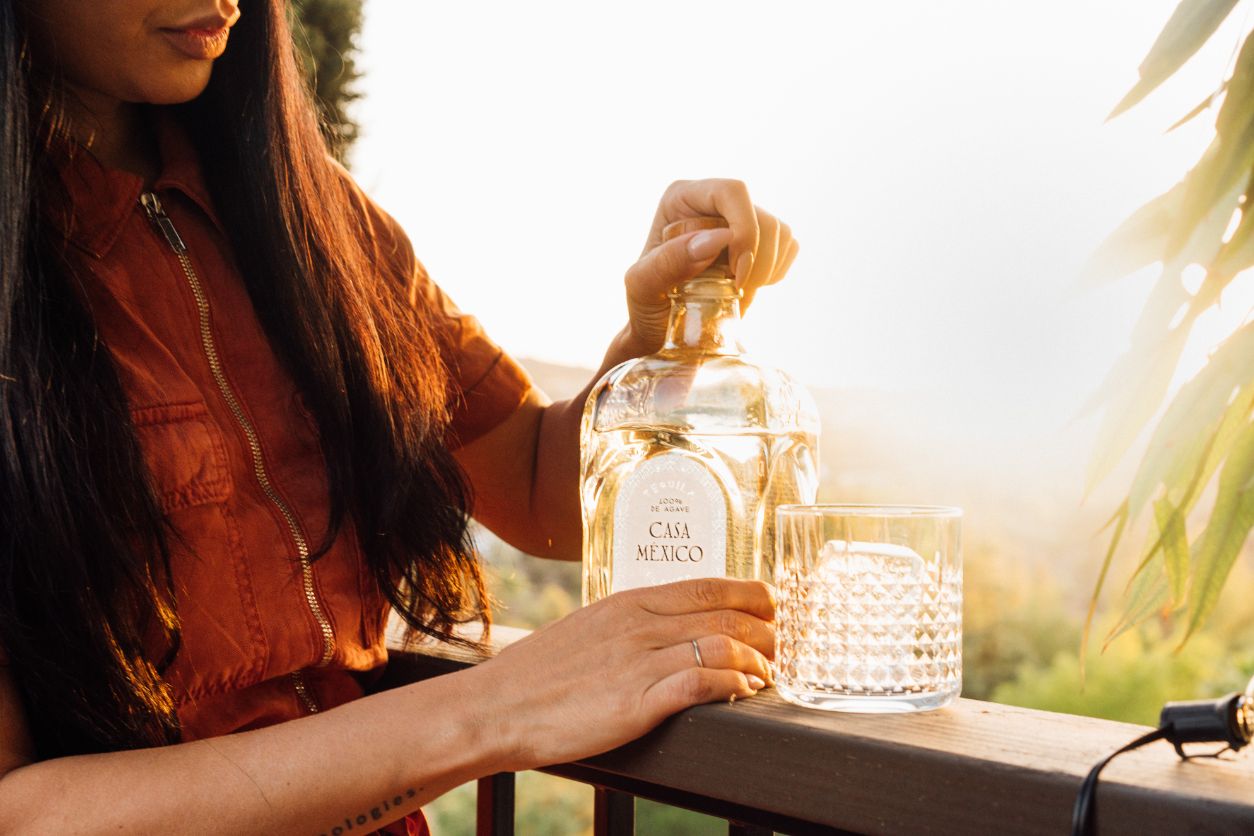
Tequila and Digestion:
Tequila has been traditionally believed to offer digestive benefits, attributed primarily to its main ingredient, the agave plant, and its unique properties.
1. Agave and Insulin Content:
- Agave, the plant from which tequila is derived, contains high levels of inulin, a type of dietary fiber known for its prebiotic properties.
- Inulin acts as a food source for beneficial gut bacteria, promoting their growth and activity in the digestive tract.
2. Promotion of Healthy Gut Flora:
- The prebiotic nature of inulin in agave may support the proliferation of beneficial bacteria in the gut, contributing to a healthy balance of intestinal flora.
- A balanced gut microbiome is associated with improved digestion, nutrient absorption, and overall gastrointestinal health.
3. Stimulation of Digestive Enzymes:
- Some studies suggest that tequila consumption may stimulate the production of digestive enzymes, aiding in the breakdown and absorption of nutrients from food.
- This enhanced enzymatic activity may lead to more efficient digestion and reduced discomfort associated with indigestion or bloating.
4. Potential Relief for Digestive Discomfort:
- Traditionally, tequila has been used as a digestive aid, particularly when consumed in moderation after meals.
- Some individuals report experiencing relief from digestive discomfort, such as bloating or gas, after consuming a small amount of tequila.
Post-Meal Consumption:
1. Timing and Dosage:
- Consuming tequila after a meal, in moderation, may promote digestion and provide relief from post-meal discomfort.
- It’s important to emphasize moderation, as excessive alcohol consumption can have detrimental effects on digestion and overall health.
2. Role of Agave and Insulin:
- The high insulin content in agave, particularly in tequilas made from 100% blue agave, is believed to play a role in promoting digestive health.
- Insulin has been shown to have anti-inflammatory properties and may contribute to a healthier gut environment.
Gluten-Free Nature
Tequila and Gluten:
Tequila is naturally gluten-free, making it a safe option for individuals with gluten sensitivities or celiac disease. This characteristic is attributed to the ingredients and production process of tequila.
1. Agave Plant as the Primary Ingredient:
- Tequila is made from the fermented juices of the blue agave plant, also known as Agave tequilana Weber.
- Unlike grains such as wheat, barley, and rye, which contain gluten proteins, the agave plant is entirely gluten-free.
2. Absence of Gluten-Containing Grains:
- Unlike some other alcoholic beverages that are derived from grains, such as beer or whiskey, tequila production does not involve the use of gluten-containing grains.
- This means that individuals with gluten sensitivities or celiac disease can enjoy tequila without risking exposure to gluten.
3. Distillation Process:
- The distillation process further ensures the gluten-free nature of tequila.
- During distillation, the alcohol is separated from other compounds in the fermented agave juice, including any trace amounts of gluten that may be present.
- As a result, the final product is virtually devoid of gluten, even if gluten-containing grains were used in the fermentation process.
4. Certification and Labeling:
- While tequila is inherently gluten-free, it’s essential to check for certification and labeling to ensure that the product is free from gluten contamination.
- Some brands may undergo additional testing or adhere to specific gluten-free certification standards to guarantee their products’ safety for individuals with gluten sensitivities.
Safe Option for Gluten-Free Diets:
1. Celiac Disease Management:
- For individuals diagnosed with celiac disease, a strict gluten-free diet is essential for managing symptoms and preventing complications.
- Tequila offers a safe and enjoyable alcoholic beverage option for individuals with celiac disease, allowing them to indulge in social gatherings without compromising their dietary needs.
2. Gluten Sensitivity and Intolerance:
- Even individuals without celiac disease may experience symptoms of gluten sensitivity or intolerance, such as digestive discomfort or bloating, when consuming gluten-containing foods or beverages.
- Choosing gluten-free options like tequila can help alleviate symptoms and support overall well-being for individuals with gluten sensitivities.
Vegan-Friendly Option

Tequila and Veganism:
Tequila is widely recognized as a vegan-friendly alcoholic beverage, meaning it does not contain any animal-derived ingredients and is produced without the use of animal products. Several factors contribute to tequila’s alignment with vegan principles:
1. Plant-Based Ingredients:
- Tequila is primarily made from the fermented juices of the blue agave plant (Agave tequilana Weber).
- Unlike some alcoholic beverages that may contain animal-derived ingredients such as honey, milk, or gelatin, tequila is derived solely from plant-based sources.
2. Production Process:
- The production process of tequila does not involve the use of animal products or by-products.
- Unlike some wines and beers that may undergo fining or clarification processes using animal-derived substances like isinglass (from fish bladder), gelatin, or egg whites, tequila production typically does not require such methods.
3. Distillation and Clarification:
- Tequila is distilled to separate the alcohol from other components of the fermented agave juice.
- The distillation process effectively removes impurities and clarifies the liquid without the need for animal-based fining agents.
4. Certification and Labeling:
- Many tequila brands explicitly label their products as vegan-friendly or cruelty-free to cater to consumers following vegan lifestyles.
- Additionally, some brands may undergo third-party certification processes to verify their vegan status and ensure transparency for consumers.
Benefits for Vegans:
1. Ethical Considerations:
- For individuals adhering to a vegan lifestyle, choosing vegan-friendly products aligns with their ethical values and commitment to animal welfare.
- By selecting tequila as a vegan-friendly option, vegans can enjoy alcoholic beverages without compromising their principles.
2. Dietary Compatibility:
- Tequila’s vegan-friendly status also makes it suitable for individuals with dietary restrictions or preferences, such as lactose intolerance or dairy-free diets.
- Vegans can confidently incorporate tequila into their culinary repertoire, whether in cocktails, marinades, or desserts, knowing it meets their dietary requirements.
Prebiotic and Probiotic Content

Tequila’s Prebiotic and Probiotic Content:
Tequila contains compounds that can act as both prebiotics and probiotics, supporting the growth and activity of beneficial bacteria in the gut.
1. Prebiotics from Agave:
- The agave plant, from which tequila is derived, contains a type of dietary fiber called fructans.
- Fructans serve as prebiotics, which are non-digestible fibers that pass through the digestive system intact and serve as food for beneficial gut bacteria.
2. Stimulation of Probiotic Growth:
- The fructans in agave provide a source of nourishment for probiotic bacteria in the gut, promoting their growth and activity.
- Probiotics are beneficial bacteria that help maintain a healthy balance of microorganisms in the gut, supporting digestion, immune function, and overall well-being.
Health Benefits:
1. Improved Gut Health:
- By promoting the growth of probiotic bacteria, tequila’s prebiotic content may contribute to a healthier gut microbiome.
- A balanced gut microbiome is associated with improved digestion, nutrient absorption, immune function, and overall health.
2. Support for Digestive Disorders:
- For individuals with digestive disorders such as irritable bowel syndrome (IBS) or inflammatory bowel disease (IBD), maintaining a healthy gut microbiome is particularly important.
- Tequila’s prebiotic and probiotic content may help alleviate symptoms and improve gut health in individuals with these conditions.
3. Immune System Support:
- A significant portion of the body’s immune system is located in the gut, where probiotic bacteria play a crucial role in immune function.
- Consuming prebiotics and probiotics, such as those found in tequila, may help support a healthy immune system and reduce the risk of infections and diseases.
Moderation and Considerations:
1. Moderate Consumption:
- While tequila contains prebiotic and probiotic compounds, it’s essential to consume it in moderation.
- Excessive alcohol consumption can have detrimental effects on gut health, including disrupting the balance of gut bacteria and impairing digestive function.
2. Other Sources of Prebiotics and Probiotics:
- While tequila may provide some prebiotic and probiotic benefits, it’s not the only source of these beneficial compounds.
- Including a variety of fiber-rich foods, such as fruits, vegetables, whole grains, and legumes, as well as fermented foods like yogurt, kefir, and sauerkraut, can also support gut health.
Comparatively Lower Hangover Potential
Factors Contributing to Lower Hangover Potential:
1. Congeners Content:
- Congeners are chemical compounds produced during the fermentation and aging process of alcoholic beverages.
- Certain congeners, such as methanol and acetone, are thought to contribute to hangover symptoms, including headaches, nausea, and fatigue.
2. Tequila’s Distillation Process:
- Tequila, particularly high-quality tequila made from 100% blue agave, typically undergoes a more refined distillation process.
- The distillation process helps to separate alcohol from impurities and congeners, resulting in a cleaner and purer final product with lower congener content.
3. Pure Blue Agave:
- Tequila made from 100% blue agave contains fewer impurities compared to spirits made from other grains or sources.
- Blue agave tequila is distilled solely from the fermented juices of the agave plant, without the addition of other grains or sugars, which can contribute to hangover symptoms.
4. Lower Sugar Content:
- Tequila typically contains lower sugar content compared to other flavored or sweetened alcoholic beverages.
- Excessive sugar consumption can exacerbate hangover symptoms by causing fluctuations in blood sugar levels and dehydration.
Hydration and Moderation:
1. Hydration Levels:
- Staying hydrated while consuming alcohol is crucial for minimizing the severity of hangover symptoms.
- Alternating between alcoholic beverages and water, as well as drinking water before bed, can help prevent dehydration and mitigate hangover effects.
2. Moderation:
- Consuming tequila in moderation is key to avoiding hangovers.
- Drinking responsibly and pacing oneself can reduce the likelihood of experiencing severe hangover symptoms the next day.
Personal Factors:
1. Individual Sensitivity:
- Hangover susceptibility varies among individuals and can be influenced by factors such as genetics, metabolism, hydration levels, and overall health.
- While tequila may have a lower hangover potential for some individuals, others may still experience hangover symptoms depending on their personal tolerance and consumption habits.
Tequila Nutrition Facts
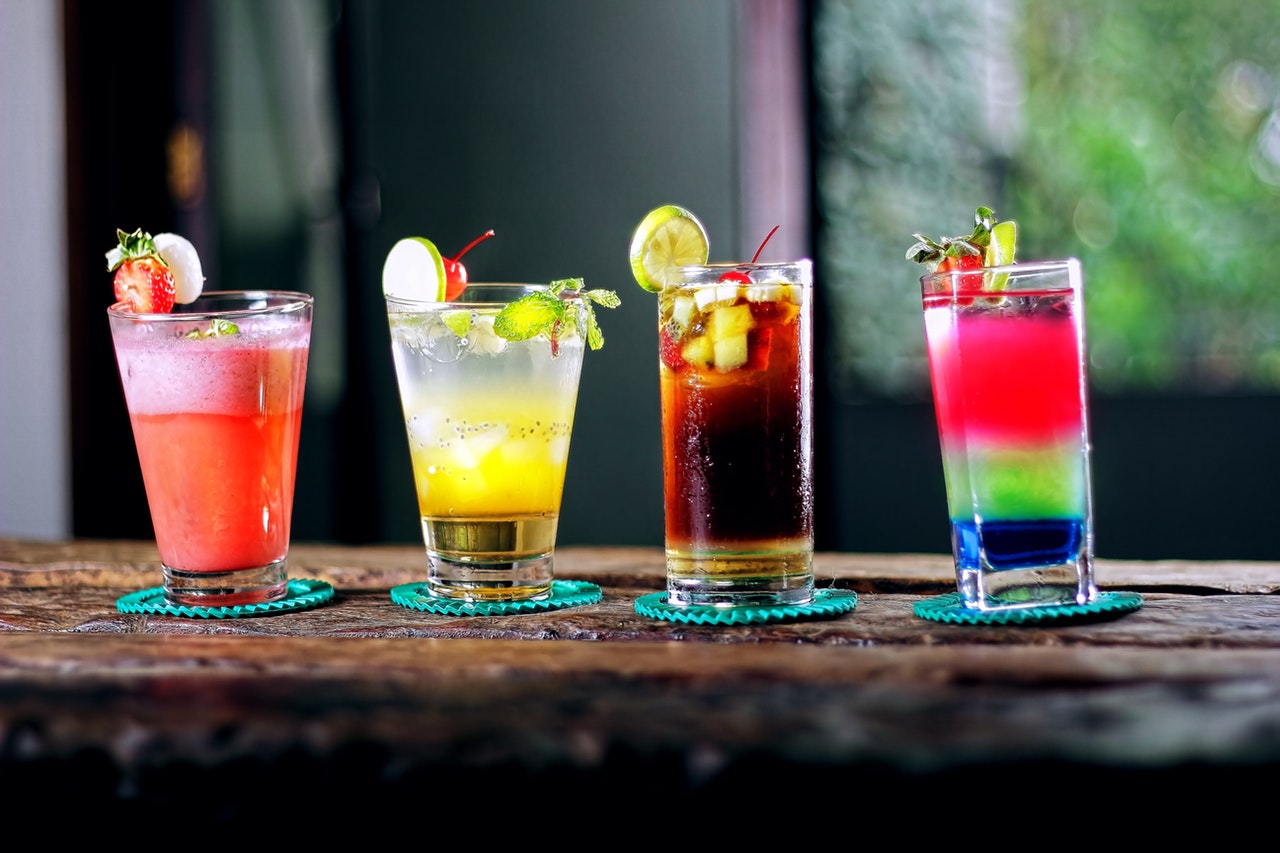
To provide a comprehensive overview, let’s examine the nutritional content of tequila per standard serving:
- Calories: 97
- Total Fat: 0g
- Sodium: 0.4mg
- Total Carbohydrate: 0g
- Dietary Fiber: 0g
- Sugar: 0g
- Protein: 0g
- Vitamin D: 0.00mcg
- Calcium: 0.00mg
- Iron: 0.02mg
- Potassium: 0.8mg
Conclusion
In conclusion, while moderation is key when it comes to alcohol consumption, tequila offers several surprising health benefits that make it a favorable choice among spirits. From its potential to regulate blood sugar levels to its gluten-free, vegan-friendly nature and digestive benefits, tequila stands out as a versatile and potentially beneficial beverage option. Whether enjoyed neat, in a cocktail, or as part of a social gathering, incorporating tequila into your lifestyle in moderation may contribute to overall well-being and enjoyment. Cheers to the healthful indulgence of tequila!
I’m Chen Mina, from Vol de Nuit, who has a special passion for bartending, especially mixing wine, beer, and cooktail. Here you will find content about alcoholic beverages, I will bring you knowledge that few people know about this drink.

